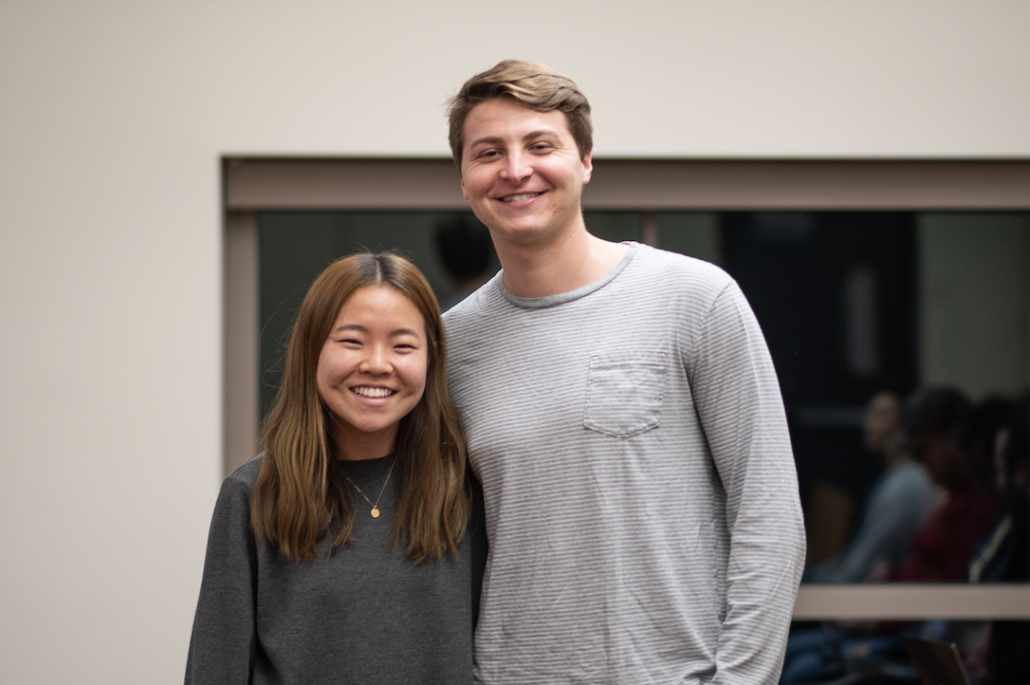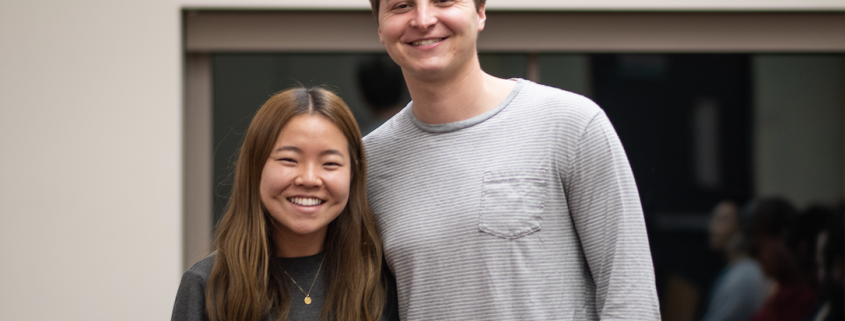After a tumultuous fall semester, USG leaders look back on their progress

In a turbulent fall semester, USC encountered continued fallout from revelations of sexual abuse by a campus gynecologist, new University leadership under an interim president and a rise in student activism over a controversial speaker on campus.
But for Undergraduate Student Government President Debbie Lee and Vice President Blake Ackerman, the past several months have also seen lasting positive change. Despite a semester riddled with conflicts, the two have been satisfied with their contribution to the growth of USG and its interactions with the University.
“I think our biggest accomplishment in our term has been building bridges among so many campus partners,” Lee said. “It’s truly incredible to see how many people are eager to work with students. It’s just that they need some student input to guide direction.”
During the 2018 campaign, Lee and Ackerman ran on improving campus safety and wellness. Under their guidance, USG has worked with the Engemann Student Health Center to provide student input on initiatives such as the expansion of mental health counselors on campus.
“I think we’ve cultivated at least 30 different kinds of relationships with various offices and departments across the University,” Lee said. “I’m very much looking forward to keeping those relationships in their fullest capacities and passing those on.”
During the past semester, USG worked with departments like Student Affairs and USC Civic Engagement. Lee is a current member of the President’s Culture Commission, a group of 13 faculty members and students created by Interim President Wanda Austin to address campus-wide issues and improve its culture. The commission is currently focusing on revising the University’s Code of Ethics.
“While goals you can check off a list are really important, the best thing was that we really built relationships for years to come that people can rely on,” Ackerman said. “I think those relationships will go a lot longer and further than just the projects that we’ve completed here.”
This semester, USG has also collaborated with the Office of Campus Wellness and Crisis Intervention, working with Associate Vice Provost Ilene Rosenstein and Dean of Religious Life Varun Soni to create OT 299, a one-unit occupational therapy course about healthy living.
But USG also faced backlash for funding an event that brought conservative speaker Ben Shapiro to campus in October. While USG currently partially funds all student-run events, senators recently proposed a bylaw amendment to allow students to petition to reject USG funding in case of safety threats on campus, partially in response to the Shapiro event.
The Senate also censured Ackerman in November after an anonymous email revealed comments he made that appeared to support hazing in his fraternity. However, the censure was later declared invalid and no official action or investigation against Ackerman was announced.
Though Lee and Ackerman would not say whether there was anything in particular they would have changed about their response to these incidents, they explained that they had developed an optimistic mindset to counter obstacles in USG.
“I think a lot of this job requires you to remember what’s important and to cut off the noise that comes with it,” Lee said.
The working relationship between Lee and Ackerman began far before they became USG president and vice president. The two attended Beverly Hills High School together, where they had also both served in the student government as president and vice president, each for one year.
“There have definitely been moments where we wanted to tear each other’s hair out,” Ackerman said. “But for every one of those moments, there are about a thousand moments where I want to just give her a huge hug and say thank you for being you.”
For the remainder of their term, Lee and Ackerman are concentrating on following through on their remaining platform points. This includes engaging with USC’s Symbols and Monuments Task Force, with the goal of renaming the Von KleinSmid Center due to the controversial history of Rufus B. von KleinSmid, the fifth president of USC who was an advocate for ethnic sterilization.
The two are also working to create more rest and meditation spaces across the campus by communicating with Engemann and the Office of Health Promotion Strategy. Lee said she has also begun working with USC Transportation to advocate for greater parking options, as only full-day plans are currently available.
“There are a few things that were a little bit stalled due to circumstances in the University and whatnot,” Lee said. “But I’m really looking forward to seeing how we can actually push for those things and get those done.”

